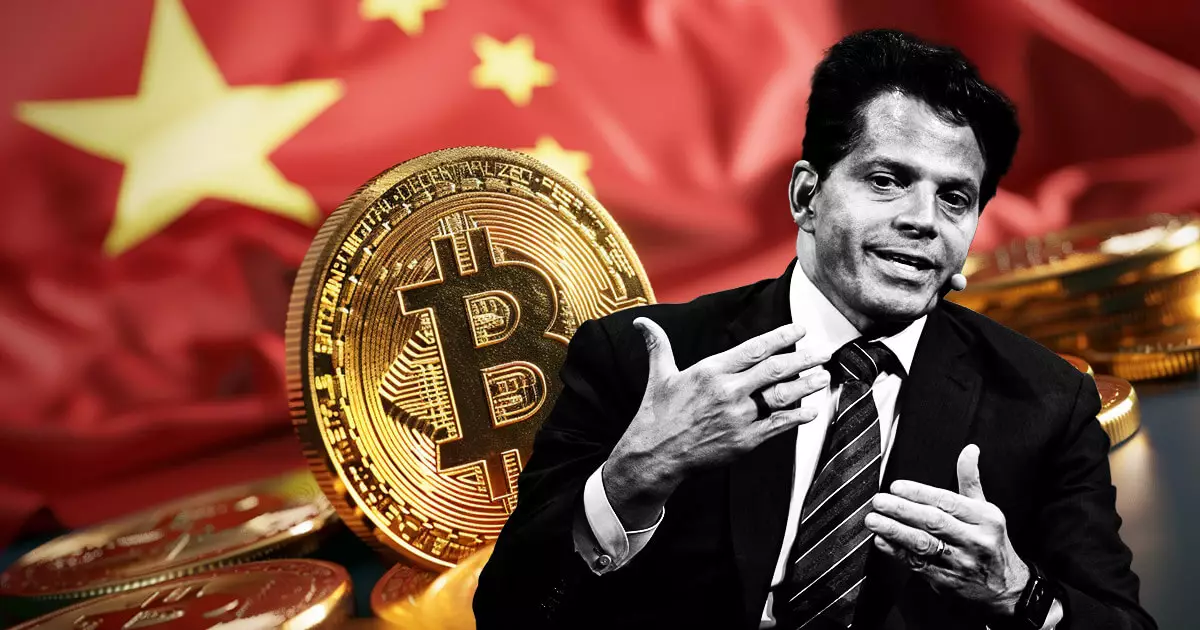As the global landscape of cryptocurrency continues to evolve, the strategic positioning of Bitcoin within national financial systems has gained unprecedented attention. Notably, Anthony Scaramucci recently emphasized a significant trend during his address at the Bitcoin MENA 2024 conference, positing that China might resume Bitcoin mining and incorporate the cryptocurrency into its reserves. This statement serves as a catalyst for broader discussions regarding how governments are recalibrating their approaches to Bitcoin, especially as the United States displays a more favorable attitude towards the digital asset.
Scaramucci’s predictions suggest a crucial turning point in the geopolitical dynamics surrounding Bitcoin. Historically perceived as contentious and facing regulatory headwinds, Bitcoin is increasingly being reconsidered as a potential tool for national resilience. The potential reentry of China into Bitcoin mining is particularly significant, given that previous regulatory crackdowns had curtailed their involvement. If true, such a move could inspire other nations to reevaluate their stance on the asset.
The U.S. has historically taken a mixed approach to cryptocurrency regulation. However, Scaramucci’s comments highlight an unmistakable shift, as various government entities engage in serious discussions about the benefits of maintaining formal Bitcoin reserves. With stronger signals from U.S. leadership, including former President Donald Trump’s commitment to uphold federal Bitcoin policies, the perception of Bitcoin is gradually changing from a speculative gamble to a strategic asset. Furthermore, the possibility of Senator Cynthia Lummis’s proposed legislation to systematically acquire Bitcoin over several years points to a methodical framework that aims to integrate cryptocurrency into the financial fabric of the country.
Pennsylvania’s recent proposal to allocate portions of its reserves to Bitcoin further illustrates a growing awareness among state governments regarding cryptocurrency’s potential benefits. As U.S. authorities explore a diversified approach, institutional players are also stepping into the fray, indicating a robust commitment to adopting Bitcoin as a reserve asset.
Beyond the United States, countries like Russia and Brazil are paving their paths toward Bitcoin integration. A Russian lawmaker’s proposal for a national Bitcoin reserve underscores a keen interest in using cryptocurrency as a means to counter economic sanctions and achieve greater financial stabilization. This move reflects a strategic pivot that resonates with other countries exploring similar endeavors, thereby suggesting a trend seen across borders.
Brazil’s ambition to allocate a significant portion—up to $18.6 billion—of its reserves into Bitcoin indicates a burgeoning trend toward viewing cryptocurrency as a viable asset for economic resilience. These initiatives are not merely reactionary; they symbolize a profound shift in how countries assess the strategic value of Bitcoin in a world rife with geopolitical tension.
What lies ahead for Bitcoin as it positions itself within the frameworks of national assets? The emergence of Bitcoin as a key player within financial systems could define future economic policies. The Bitcoin Policy Institute has presented compelling arguments advocating for a U.S. strategic Bitcoin reserve, highlighting potential benefits such as bolstered financial stability and enhanced national influence in the global economic arena.
Proponents assert that weaving Bitcoin into national reserves might serve multifaceted purposes, providing a hedge against inflation and a means to assert financial sovereignty amidst turbulent global sentiment. Nonetheless, challenges and skepticism persist, particularly concerning Bitcoin’s notorious volatility and the risks associated with concentrating wealth in a digital asset.
The ongoing institutional momentum—supported by governmental interests and rising discussions around large-scale Bitcoin integration—forecasts a future where Bitcoin is more than just a speculative venture. As a potential cornerstone for national financial strategies, its role could lead to a realignment of existing power structures in digital finance.
As nations reassess Bitcoin’s place within their financial architectures, the implications are staggering. Scaramucci’s insights regarding China’s potential resurgence in Bitcoin mining and overall strategy suggest that the tides are changing, increasingly integrating Bitcoin into the fabric of global finance. The collective movements of the U.S., Russia, Brazil, and potentially other nations indicate a widespread acceptance of Bitcoin’s strategic value, prompting a reevaluation of digital assets within the sphere of national policy. In this evolving landscape, the future of Bitcoin not only looks promising but could very well redefine the dynamics of global finance as we know it.



















